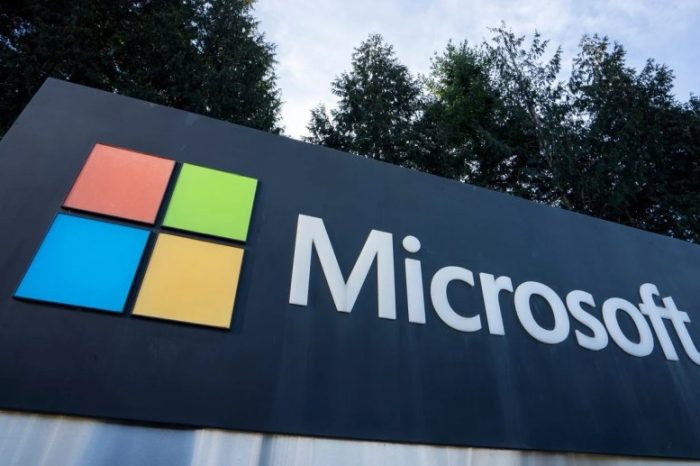Top Tech News Today, October 29, 2025

Top 10 Tech News Stories Today — Your Quick Briefing on the Latest Technology News, Startup Trends, and Innovation Shaping the Future
Good morning! It’s Thursday, October 30, 2025, and we’re back with the Top 10 Technology News Stories for the Day. From trillion-dollar valuations to breakthroughs in space tech and global AI governance, here are the biggest stories shaping startups, markets, and innovation over the past 12 hours.
Whether you’re a founder, investor, or tech enthusiast, this daily digest keeps you informed and ahead of the curve — without scrolling endlessly through feeds.
Here’s your roundup of the latest tech news making waves today.
Latest Tech News Today
1. Nvidia Becomes First Company to Hit $5 Trillion Valuation
Nvidia’s market capitalization surged past $5 trillion on Thursday, becoming the first company in the world ever to reach the $5 trillion milestone. The rally comes amid soaring global demand for its AI-optimized GPUs and the success of its Blackwell architecture, now powering large-scale training clusters across tech giants and national labs.
Analysts attribute the surge to Nvidia’s dominance in AI infrastructure, bolstered by partnerships with Oracle and the U.S. Department of Energy. Yet, supply chain risks loom as TSMC accelerates its 1.4nm chip production. The achievement reinforces Nvidia’s position as the backbone of the AI revolution — but sustaining this lead will depend on innovation amid intensifying competition from AMD and custom silicon players.
Source: Reuters
2. Alphabet Surpasses $100 Billion in Quarterly Revenue for the First Time
Alphabet smashed records with $100 billion in Q3 2025 revenue, driven by strong performance from Google Cloud and its Gemini AI integrations. Cloud revenue climbed 35% year-over-year, and YouTube’s new AI-upscaling features spurred engagement growth across connected TVs.
The milestone underscores Alphabet’s strategic pivot toward AI-infused products and infrastructure. However, rising regulatory pressure in Europe over antitrust and AI governance could temper momentum. With Microsoft and Amazon chasing similar gains, Alphabet’s next challenge is balancing R&D spending with profitability in a tightening AI economy.
Source: Axios
3. Meta’s AI Spending Drags Profits Despite 22% Revenue Growth
Meta posted $42.3 billion in Q3 revenue, up 22%, but its stock slipped 5% in after-hours trading as massive AI infrastructure investments exceeding $40 billion squeezed margins. CEO Mark Zuckerberg reiterated that the spending spree — focused on Reality Labs and metaverse R&D — is a long-term bet.
While Meta’s AI-driven ad tools are boosting efficiency and engagement across Instagram and WhatsApp, investors remain wary of unclear ROI timelines. Analysts warn that the company must prove that its metaverse and AI initiatives can generate sustainable returns amid global economic headwinds.
Source: Bloomberg
4. Samsung’s Profits Triple as AI Chip Demand Explodes
Samsung Electronics’ operating profit jumped threefold to $7.6 billion in Q3, ending four straight quarters of losses thanks to a surge in AI memory chip demand. Its semiconductor arm rebounded sharply as Nvidia and other AI players stockpiled HBM3E chips for next-gen data centers.
The rebound strengthens South Korea’s position in the global AI supply chain, though export restrictions to China and rising competition from SK Hynix could limit growth. Samsung’s renewed focus on advanced node production and AI-enhanced Galaxy devices signals its determination to stay ahead in the AI hardware race.
Source: Reuters
5. China Unveils $100 Billion Tech Sovereignty Plan
China announced a sweeping Five-Year Plan to achieve self-reliance in semiconductors, quantum computing, and “green AI,” pledging over $100 billion in R&D subsidies to domestic firms such as Huawei and SMIC. The blueprint aims to capture 30% of the global AI market by 2030, countering U.S. sanctions with state-driven innovation and new 6G standards.
Critics warn the plan could deepen tech bifurcation between the East and West, but it also promises opportunities for developing nations through affordable 5G infrastructure and Belt and Road partnerships.
Source: South China Morning Post
6. OpenAI Prepares for a $1 Trillion IPO
OpenAI is laying the groundwork for an IPO that could value the company at up to $1 trillion, following explosive adoption of its enterprise AI tools. The move includes restructuring its for-profit arm to attract institutional investors while maintaining its partnership with Microsoft.
With annual recurring revenue topping $5 billion, OpenAI’s public debut would reshape Silicon Valley’s funding landscape. But antitrust scrutiny, ethical concerns, and intensifying competition from Anthropic and xAI could complicate its path to market.
Source: Reuters
7. AI Rescues NASA’s James Webb Telescope
In a first-of-its-kind intervention, researchers from the University of Sydney used machine learning algorithms to fix a critical misalignment in NASA’s James Webb Space Telescope, preventing blurry images that threatened its $10 billion mission.
The AI-driven calibration achieved sub-micron precision without physical repair, extending the telescope’s lifespan and enabling sharper observations of distant galaxies. The breakthrough could influence global space programs, including ESA’s Euclid mission and China’s FAST array.
Source: SciTechDaily
8. TECH7 Summit Pushes for Unified Global AI Governance
The 2025 TECH7 Summit in Ottawa concluded with a Joint Declaration on responsible AI governance and cybersecurity collaboration. Leaders from G7 nations pledged to implement cross-border standards under the Data Free Flow with Trust (DFFT) framework, emphasizing ethical AI and digital trust.
The declaration aims to curb deepfake proliferation, strengthen cyber resilience, and promote tech inclusion for developing regions. Implementation challenges remain, but analysts say this marks a turning point in global AI coordination.
Source: The Globe and Mail
9. Tesla Prepares Succession Plan Amid Musk Pay Uncertainty
Tesla’s board has developed a succession plan in case shareholders reject Elon Musk’s $1 trillion compensation package during the upcoming November 6 vote. Insiders point to Tom Zhu, Tesla’s global operations head, as a likely successor.
The move signals Tesla’s growing institutional maturity as it balances governance stability with innovation. A leadership shift could reshape global EV competition and investor confidence in Tesla’s AI-driven autonomy roadmap.
Source: Bloomberg
10. Character.ai Bans Teen Users to Address AI Safety Concerns
AI companion startup Character.ai has barred users under 18 from interacting with its chatbots after mounting reports of unsafe interactions. The company will implement age verification via third-party tools and redirect minors to educational resources.
The decision follows regulatory pressure in the U.S. and U.K. over child safety and could set a precedent for AI content moderation worldwide. While critics call it restrictive, advocates hail it as a necessary step to safeguard youth in the age of AI intimacy.
Source: BBC
Closing Note
From trillion-dollar valuations to AI-driven space rescues, today’s stories share a single thread — AI is rewriting the rules of global industry, governance, and competition.
As innovation accelerates, the balance between progress, ethics, and stability becomes the defining challenge of our time.
Until tomorrow, stay informed.




